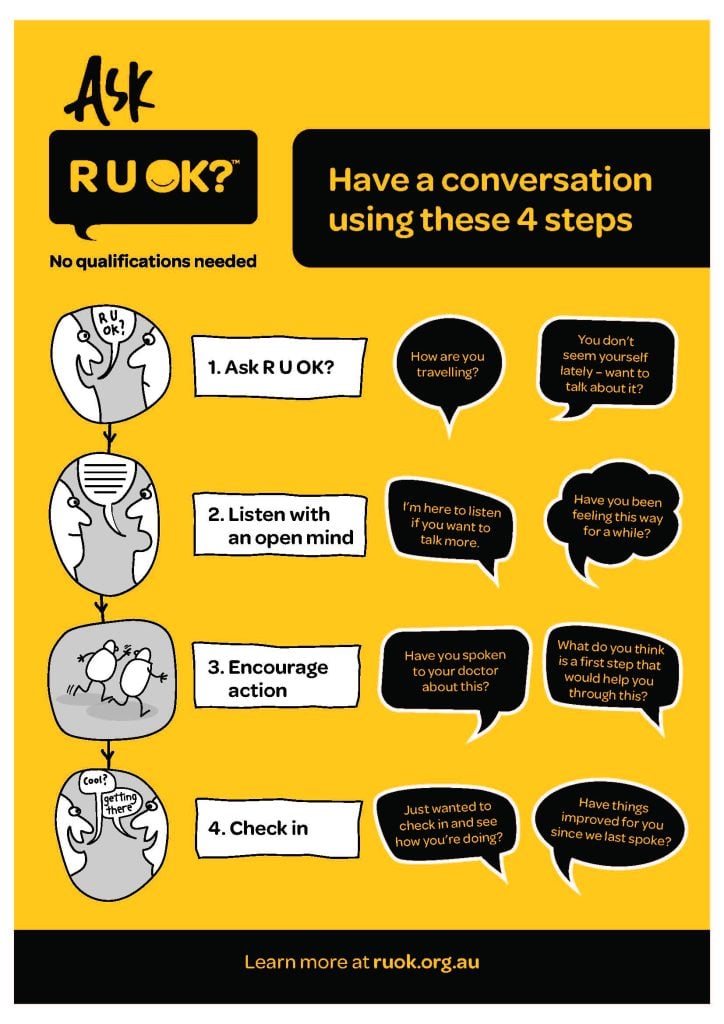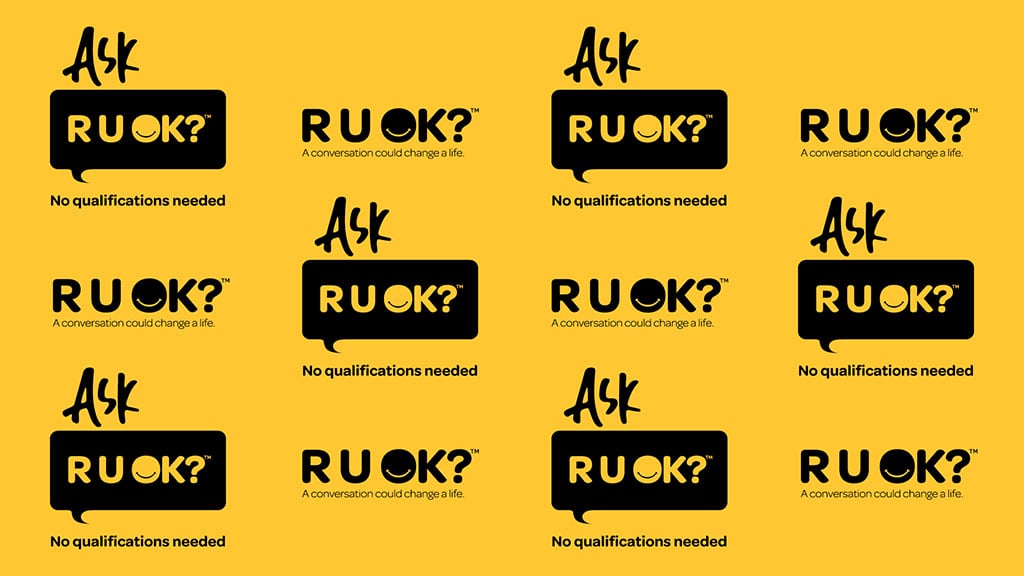Just four simple steps: how to ask someone ‘R U OK?’
Today, Thursday 8 September, is R U OK? Day – the national day of action reminding us all to check in with the people around us.
The simple act of having regular and meaningful conversations can make a huge difference to someone who may be struggling. Everyone can feel low or anxious at different times, and it’s such a gift to let your family, friends and peers know that you’re there for them.
We know that it’s not easy being a uni student – and it may be that some of your friends are struggling with things like:
- managing anxiety, depression or low self-esteem
- adjusting to study
- building social networks or intimacy
- managing friendships.
Whatever the issue, feeling noticed, heard and cared for is a powerful thing – and it’s something we can all do. So, if you feel like something’s a bit ‘off’ with someone you know, or you notice a change in what they’re doing or saying, trust your instincts and take the time to ask them: ‘Are you OK?’
Where do I start?
You don’t need to have professional qualifications to have an R U OK? conversation – just listening and giving someone your time is a great place to start. Try following these four simple steps:

If your friend or loved one says they’re OK, but you’re worried they might be putting on a brave face, this could be because they’re concerned about being judged or looking weak, or aren’t sure how asking for help may affect their study or work.
Look out for a mismatch between words and non-verbal behaviour. For example, they might say, ‘I’m fine’, but their tone is flat or aggressive, or their facial expression is sad and they avoid eye contact. To encourage them to open up, it’s important to acknowledge their feelings and use open-ended questions – ‘what’, ‘where’, ‘how’. For example:
- Help me understand what is going on for you.
- Help me understand more about how you’re feeling.
- Who else have you talked to about this and what did they suggest might help?
- I care about you, what can I do to help?
If you’re worried that you’re prying or that you might make things worse, check out these helpful R U OK Day resources for ways to prepare yourself and some useful strategies to try.
You can also tune into today’s nationwide virtual R U OK? Day event at 12pm, when R U OK? CEO Katherine Newton and special guests share conversation tips and personal stories.
What if I think professional help is required?
Some situations may be too big or serious for you to handle alone. By listening to your friend, together you can identify the type of help they’re ready for – from self-help resources to professional help that includes medical and counselling support.
If you’re ever concerned for your safety or the safety of others, seek immediate assistance by calling Triple Zero (000).
Deakin offers a range of free services to help students with their mental health and wellbeing. We encourage you to:
- Reach out to our experienced and qualified counsellors for free and confidential support. If you’re based overseas, you can access our Student Assistance Program for local services.
- Book an appointment with a doctor at the Deakin Medical Centre.
- Visit our Ask Counselling online blog for confidential advice.
- Download the DeakinWELLBEING app – its interactive, fun and bite-sized activities, resources and information help you take small steps every day to build positive habits, coping skills and resilience.
Oh, and don’t miss our campus pop-up and trivia tonight!
If you’re on campus today, look out for our Wellbeing Ambassadors in the bright yellow R U OK? Day t‑shirts. They’ll be at each Student Central from 10am to 1pm handing out free chocolate and bananas, as well as some R U OK? Day merch. Stop by and say hi!
And it’s not too late to register for our R U OK? Day online trivia extravaganza focusing on hobbies. Run by the Deakin Wellbeing Ambassadors, we’ll test your knowledge of the popular (and quirky) hobbies and pastimes that bring people together and keep life fun. There’s some great prizes up for grabs!
When: Tonight, 6–7.30pm
Register now, and view terms and conditions.

You must be logged in to post a comment.